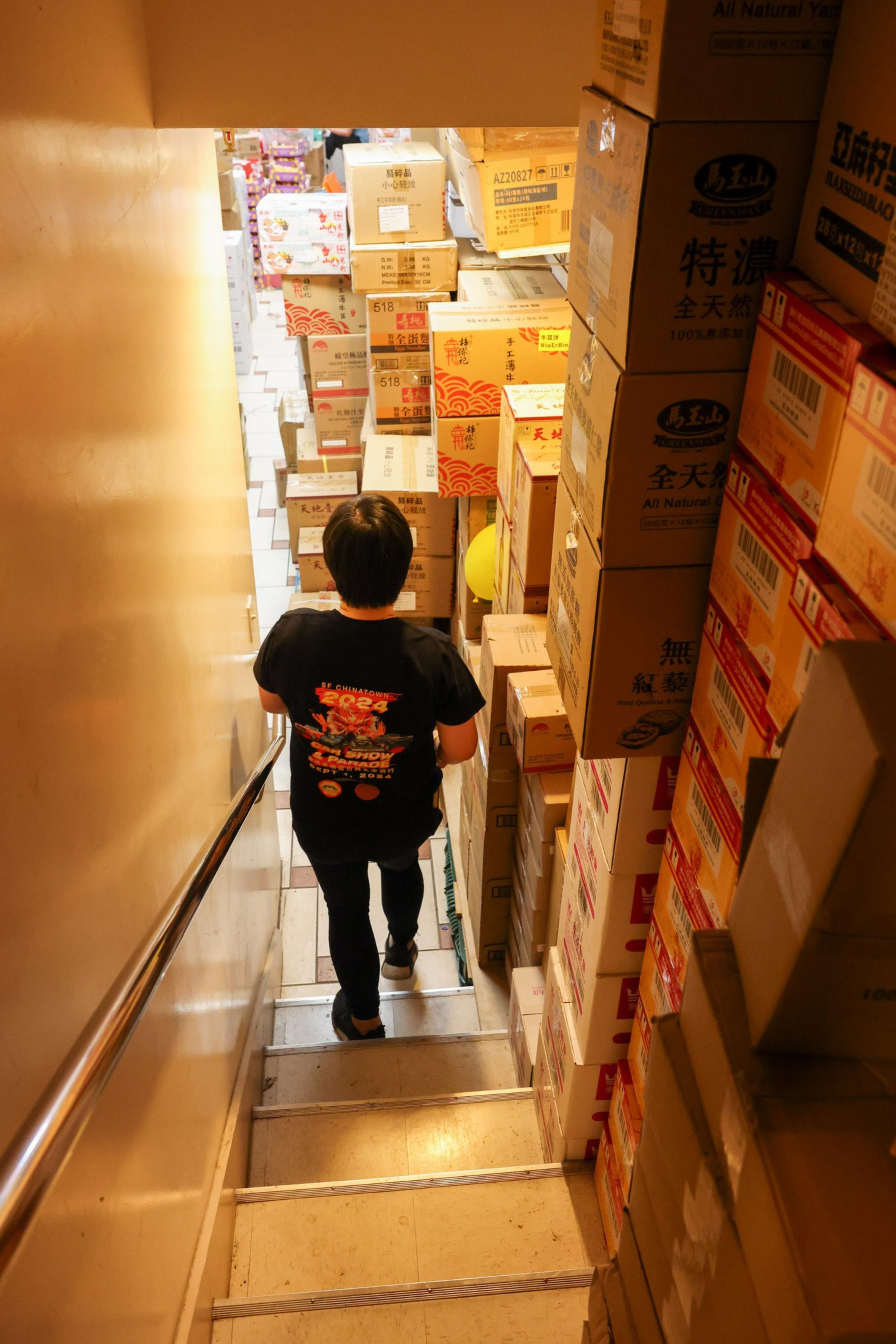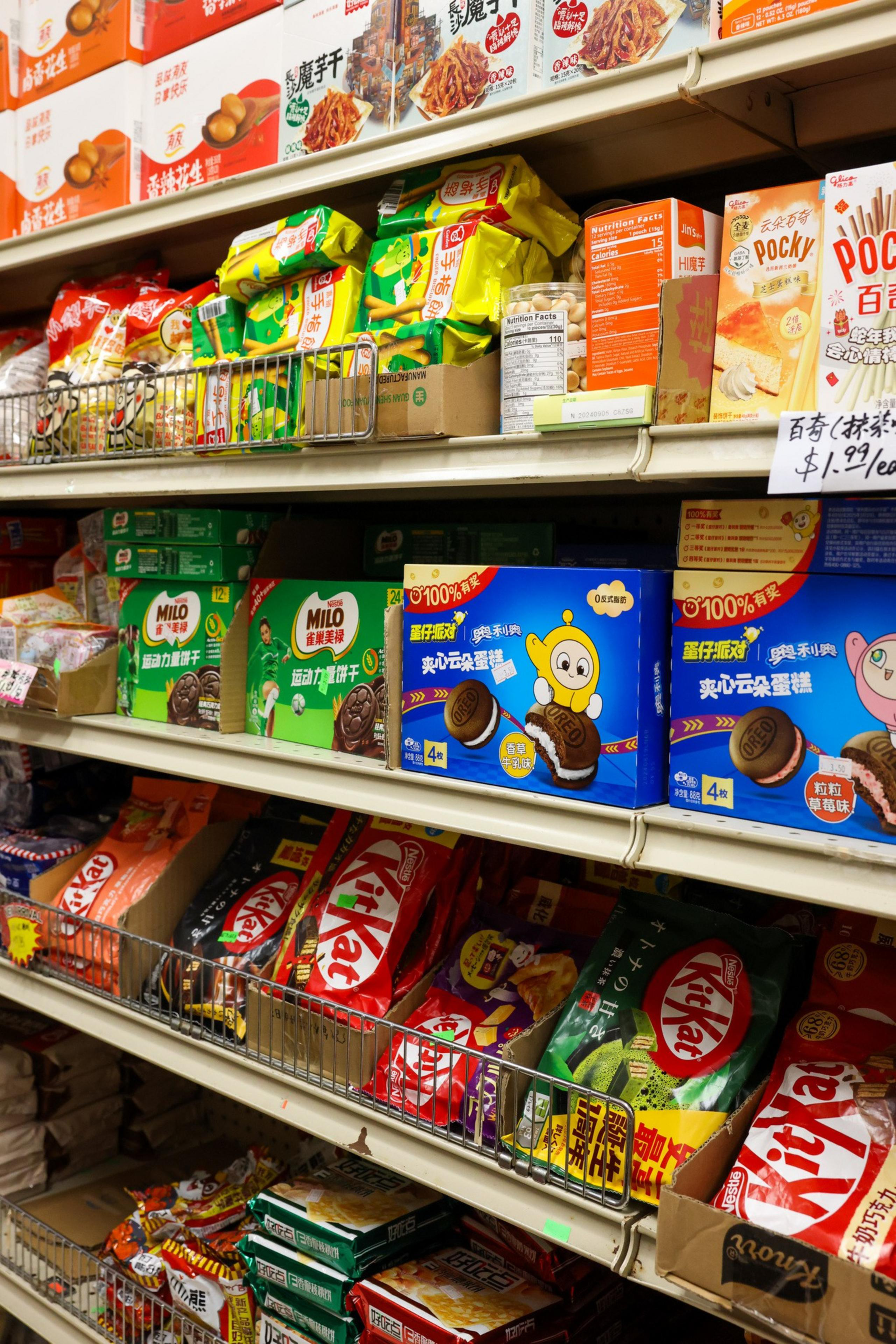In San Francisco’s Chinatown, Mill Lei has placed an order for 500 bags of rice from Thailand— more than 2,000 tons. It’s the biggest order she’s ever made, but she still doesn’t feel it’s enough.
As the owner of the Asian grocery store Jumbo Trading Co., Lei has been scrambling to get as many Asia-imported goods from her distributors as possible since President Donald Trump’s tariff announcement. She has been bombarded by calls from customers asking about the potential price increase of basic foods like rice, noodles, and cookies, many of which are products from China.
“If you have the order now, you might be able to get a more stable price,” she said in Mandarin. “But after this round, who knows what the price will be?”

Like many Chinese American business owners, Lei checks the news daily for updates on the ongoing escalating U.S.-China trade war. Over the past few days, tariffs on some Chinese goods climbed from 54% to 104%, then 125%. By Thursday, the number had hit 145% (opens in new tab); on Friday, China raised its tariff on U.S. goods to 125%. The tariffs —part of a larger trade and geopolitical dispute between the U.S. and China — are making it increasingly difficult for small-business owners to plan their inventories.
Prices at Lei’s store have already begun to rise — though modestly, for now. She pointed to a package of abalone chicken-flavored instant noodles imported from Hong Kong: Last week, it was $4, but on Wednesday afternoon, it cost more than $5. She said new shipments from China could come at more than double the price.
Lei opened the door of her attic storage and warehouse, where boxes of goods are stacked higher than her head. She expects she’ll soon need to use her home garage to store the massive rice shipment.


A few blocks away, on Ross Alley, Kevin Chan was greeting tourists at his fortune cookie shop, Golden Gate Fortune Cookie Factory.
“I’m stocking up on everything I can,” said Chan, who imports many of his supplies from China or India — from packaging materials like bags and boxes to ingredients such as sesame seeds. He complained that eggs, a key ingredient in his cookies, have surged in price as well.
“It’s a double blow,” he said. “Maybe I’ll start looking into Vietnam. Nobody expected this to happen.”

WeChat screenshots of a conversation between Lei and her distributor show a shift in pricing policy. Promotions like “Buy 10, get one free” have been eliminated.
Businesses outside the food sector are feeling the pressure too. On tourist-heavy Grant Avenue, Yvonne Wu, who imports most of the goods for her gift shop, Jing Ying Gift Shop Inc., from China, is holding off on placing her next order.
“For now, I’m just focusing on what I already have and what I can get from domestic distributors,” she said. “I want to wait until the political problems settle before I consider raising prices.”

On Jackson Street, Vincent Fung, who sells incense and ceremonial supplies for Chinese religious worship, said he started stockpiling products ahead of the November election in anticipation of rising tensions. Almost everything in his store, Buddha Exquisite Corp, comes from China, he said.
“If we make enough money, we’ll just keep buying more and stocking up,” he said.


For Chan, though, the impact of the trade war goes beyond economics.
“When I go to China, I don’t feel welcome,” he said. “And when Chinese people come to America, they don’t always feel welcome either. It’s just not good — for either society.”
